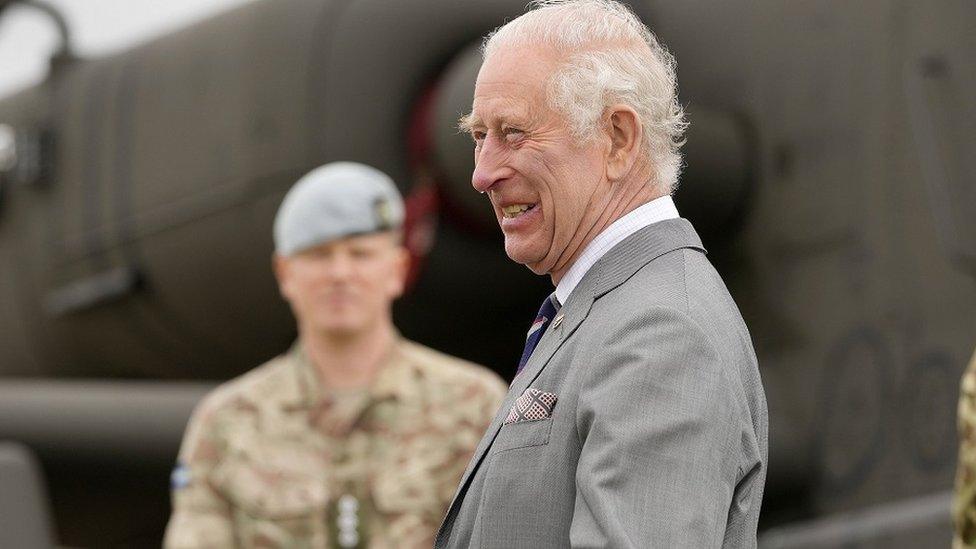D-Day veteran recalls Omaha Beach 'bloodbath'
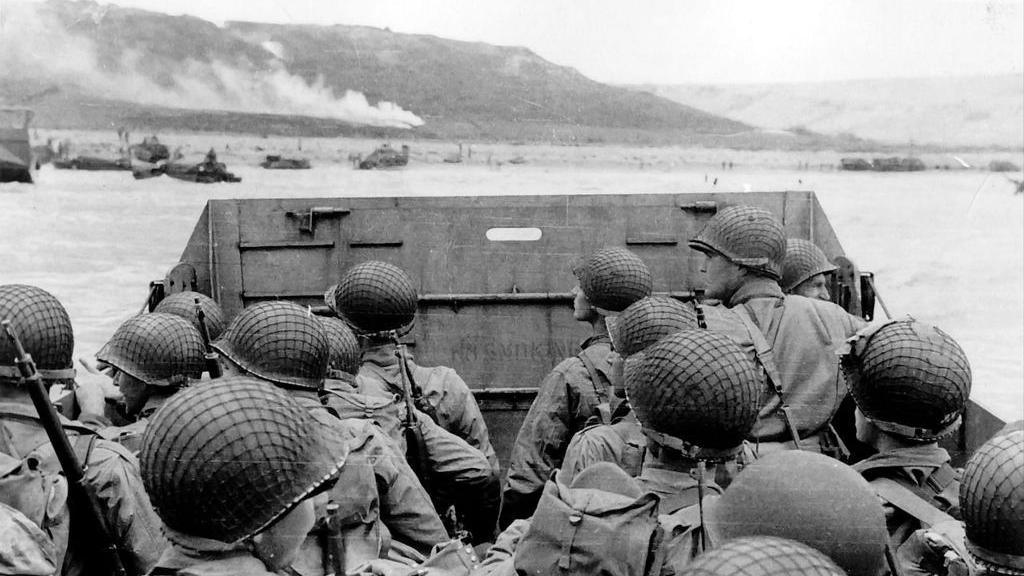
John Daniels said landing in Normandy was "noisy and uncomfortable"
- Published
A telegraphist who was part of the second wave to storm Omaha Beach as part of the Normandy Landings has described the historic battle as a "bloodbath".
John Daniels, 104, who lives in Hitchin in Hertfordshire, sailed on the HMS Glasgow and took part in the landing alongside American soldiers in 1944.
On the 80th anniversary of D-Day, he recalled: "Let's be honest about this, there was no great love lost between British and American forces, they were fighting the same battle but they didn't like each other so there was some fraught situations.
"The Americans got slaughtered, there's not two ways about it, Omaha Beach was a bloodbath as far as they were concerned."
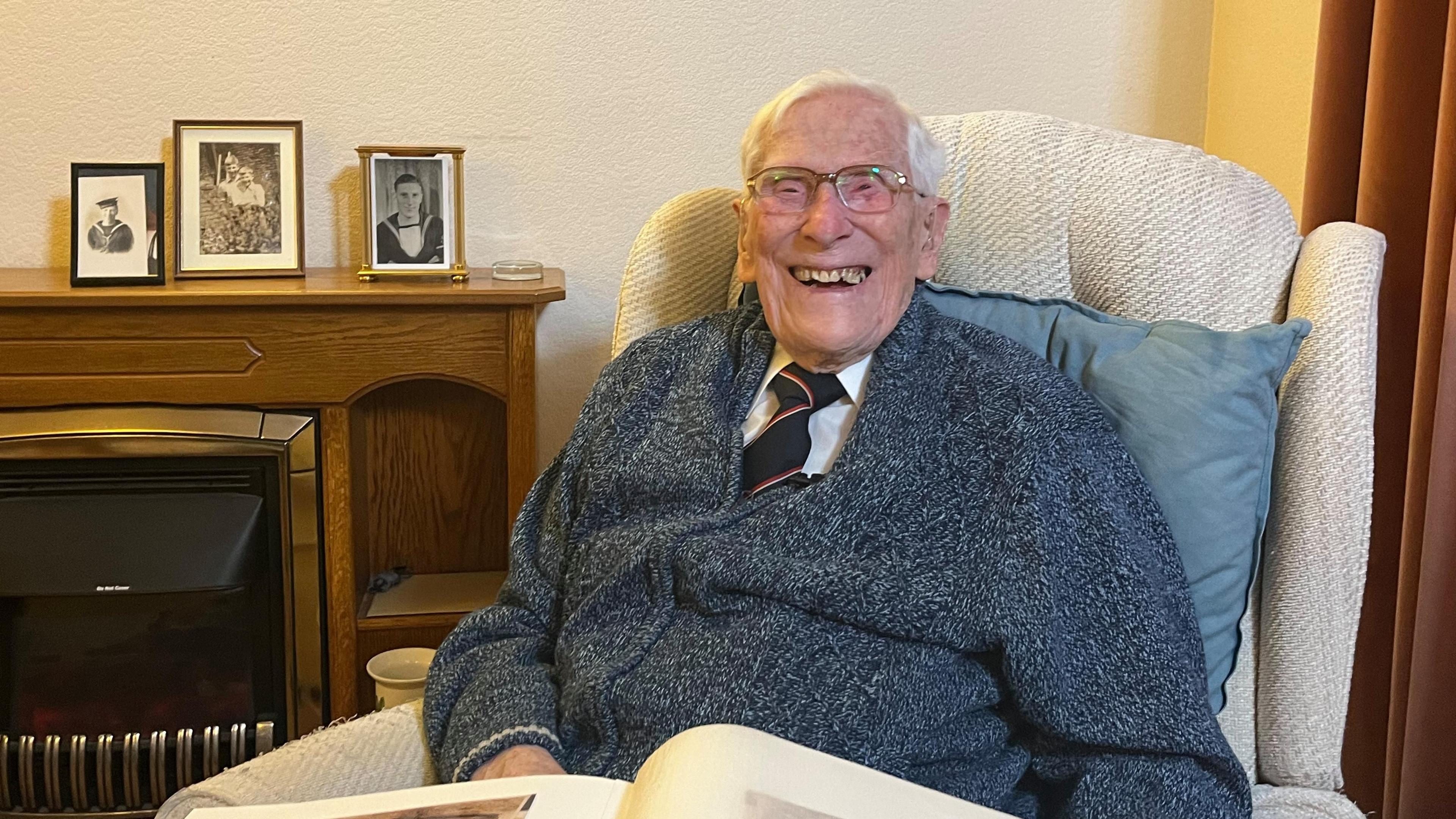
John Daniels was 24 when he took part in D-Day
The D-Day landings marked the start of the allied campaign to liberate France and Western Europe from Nazi occupation during World War Two.
The storming of Omaha Beach was later depicted in the film Saving Private Ryan.
Mr Daniels' family were unaware of his involvement in the allied landing until the film was released in 1998.
When his daughter Sue Harder asked if he had seen it, she said "he got very upset and very cross".
She added: "He said 'that was not Omaha beach' because he was there. It was the first indication of what he had been involved in."
Her sister Jo Pinkston said that they had "no idea of any of his war experiences".
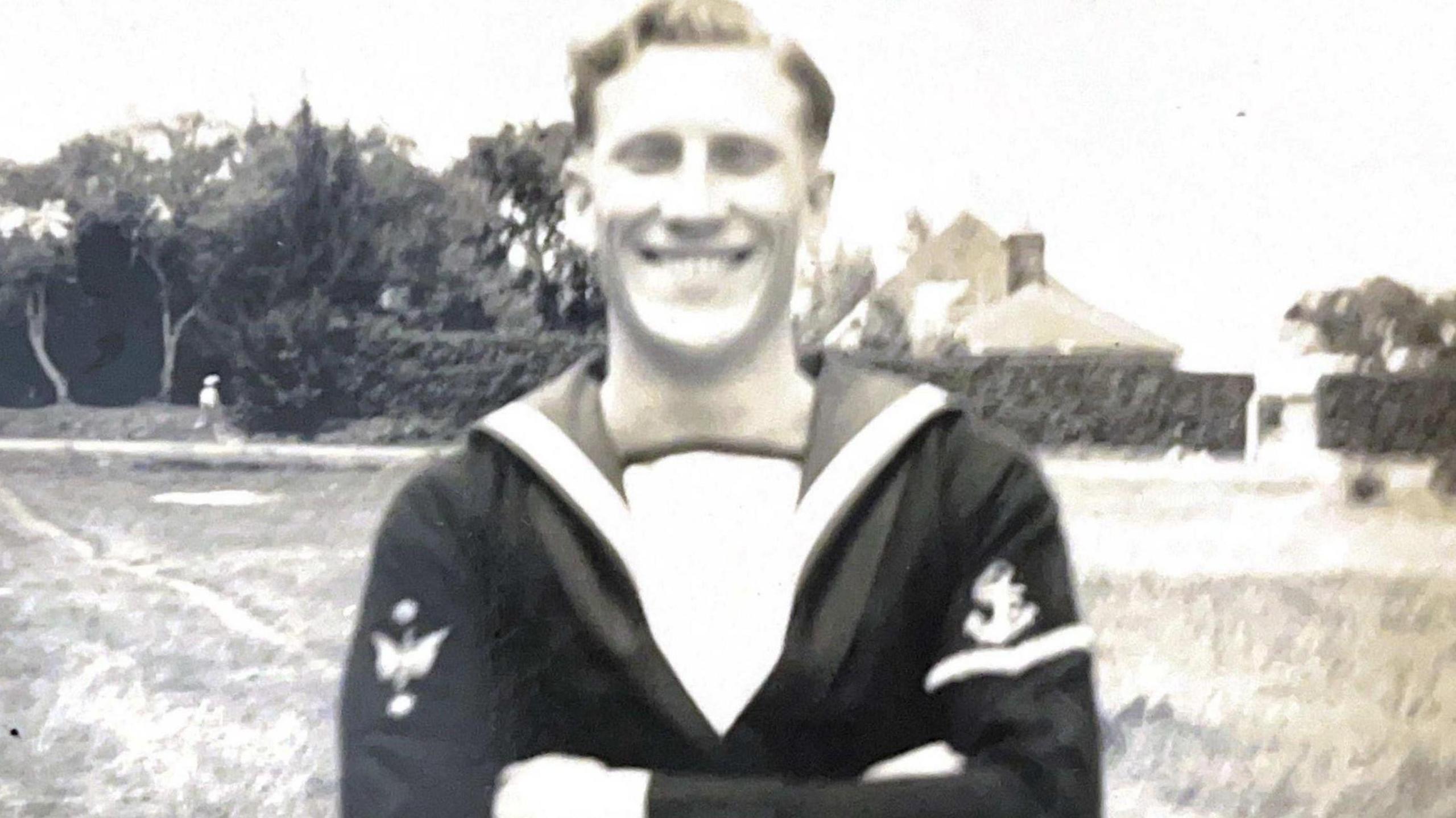
John Daniels signed up to the Royal Navy in Newport, Wales
Born in Newport, Wales, Mr Daniels joined the Royal Navy "out of sheer desperation" due to a lack of other opportunities.
When he was 24 years old, he was involved in allied invasion of Normandy.
He was transported to the landing site in a DUKW, an amphibious truck, which he said was "noisy and uncomfortable".
The veteran recalled: "We bounced over the water and they went 'out' and we grabbed what we had to carry and went up the beach.
"The Germans were aiming at the place the landing was, and if you didn't move you got shot.
"You didn't have time to think, you trained to do something and knew what you had to do and got on and do it."
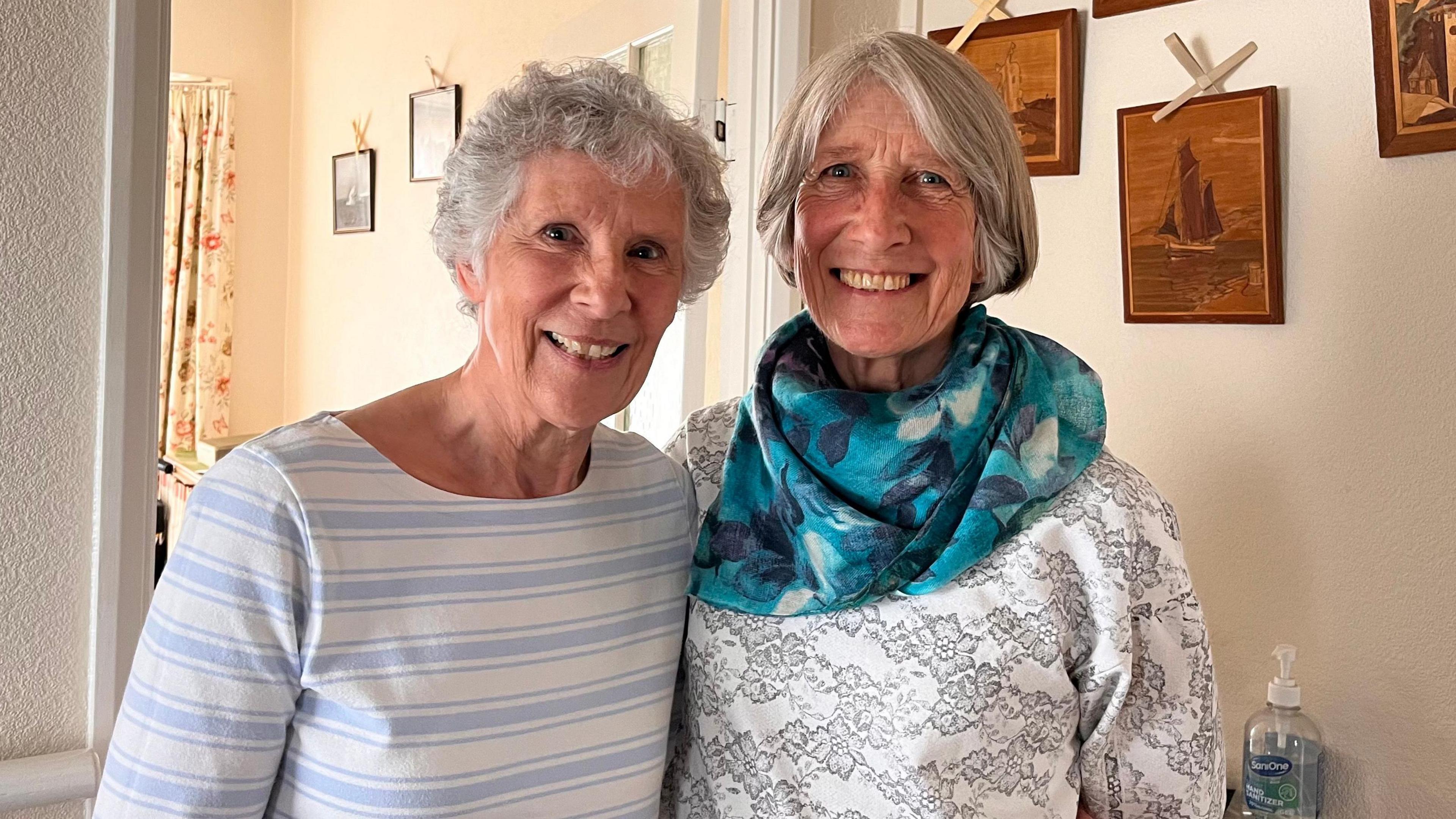
John Daniels' daughters Sue Harder (left) and Joan Pinkstone (right)
He arrived at Omaha Beach with the Americans and during the landing his radio equipment was damaged.
"It worked but didn't work as well as it should have done," he said.
He was then tasked with being a stretcher bearer.
"That was a bit nasty because you were picking people up who were badly wounded, shot up and maybe half dead," he told BBC News.
"You'd take them down the beach where parties would pick them up and load them up to the ships."
He praised the allied air force for protecting soldiers on the beach who were being targeted by German aerial attacks.
'Another world'
The 104-year-old, who still does sit-ups every morning and can touch his toes, admitted he finds it difficult to watch D-Day coverage on television.
He said: "It's difficult to connect that with the present day because it was all so rushed and noisy, people getting injured and killed, it was another world completely."
"I wasn't the only one, there were thousands of us, I just happen to be the right age group."
Follow Beds, Herts and Bucks news on Facebook, external, Instagram, external and X, external. Got a story? Email eastofenglandnews@bbc.co.uk, external or WhatsApp us on 0800 169 1830
Related topics
More stories on the BBC
- Published27 May 2024
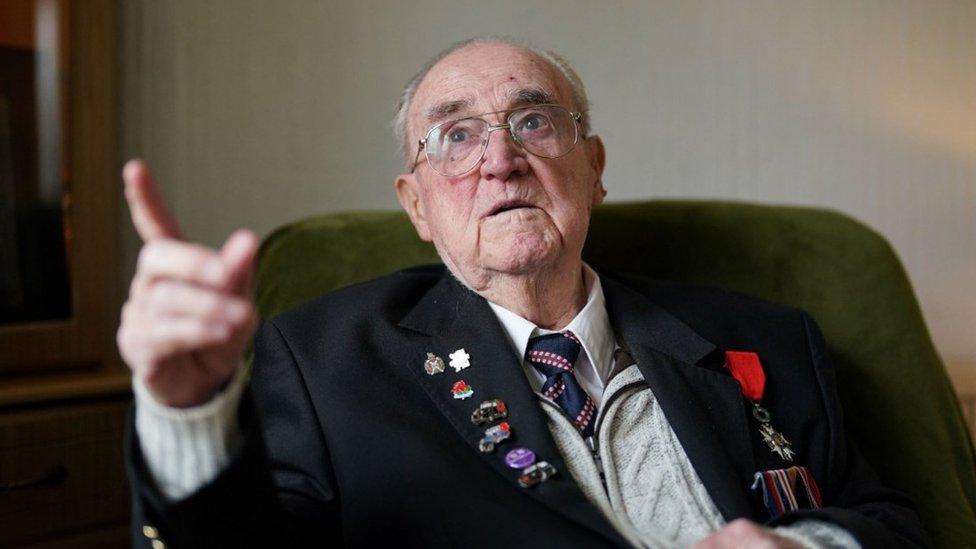
- Published18 May 2024
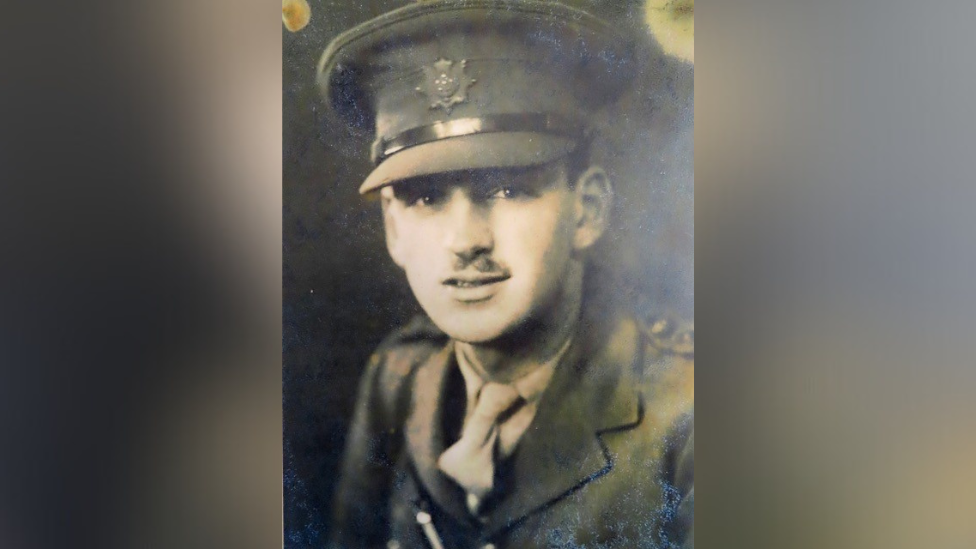
- Published17 May 2024
